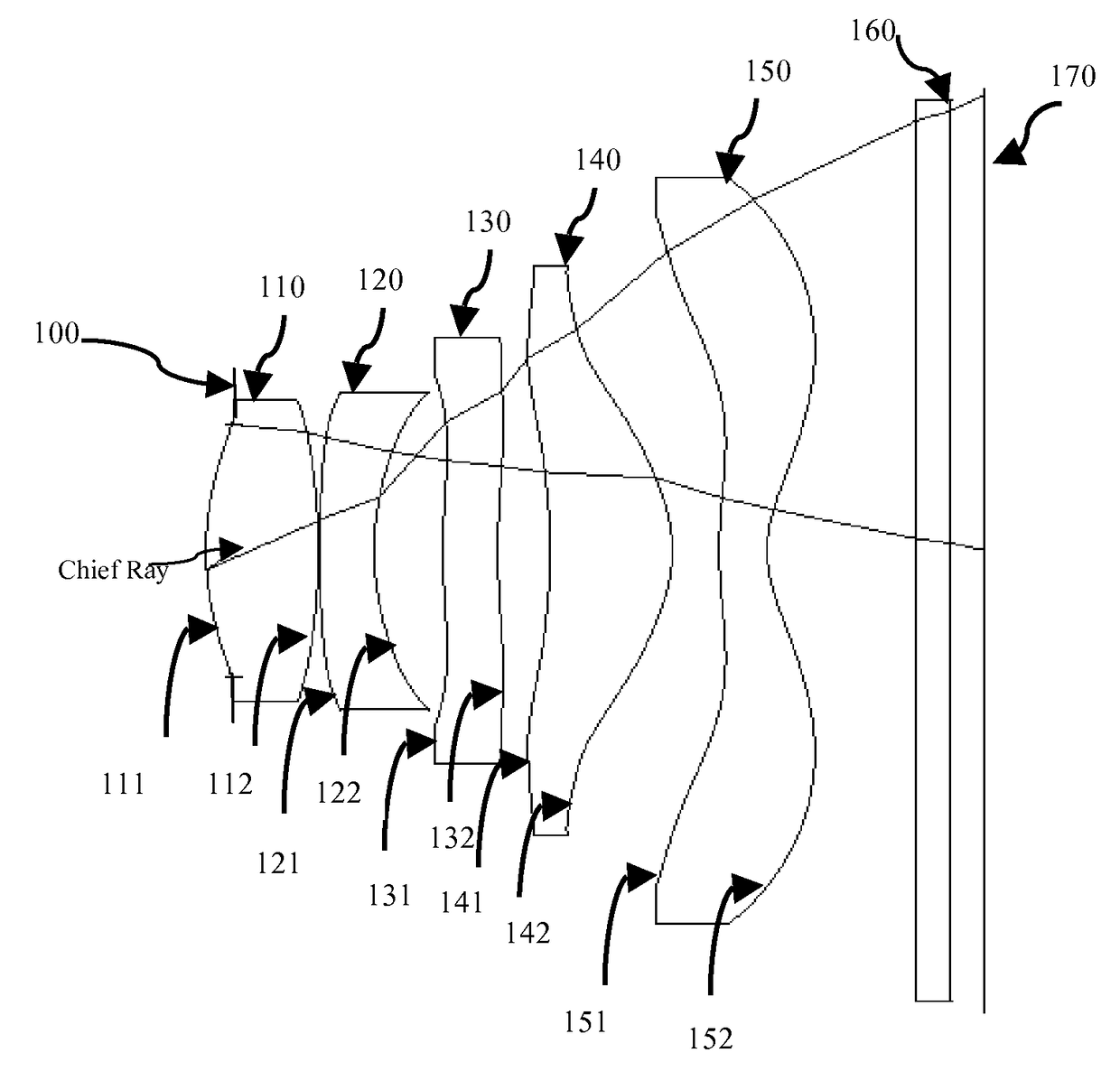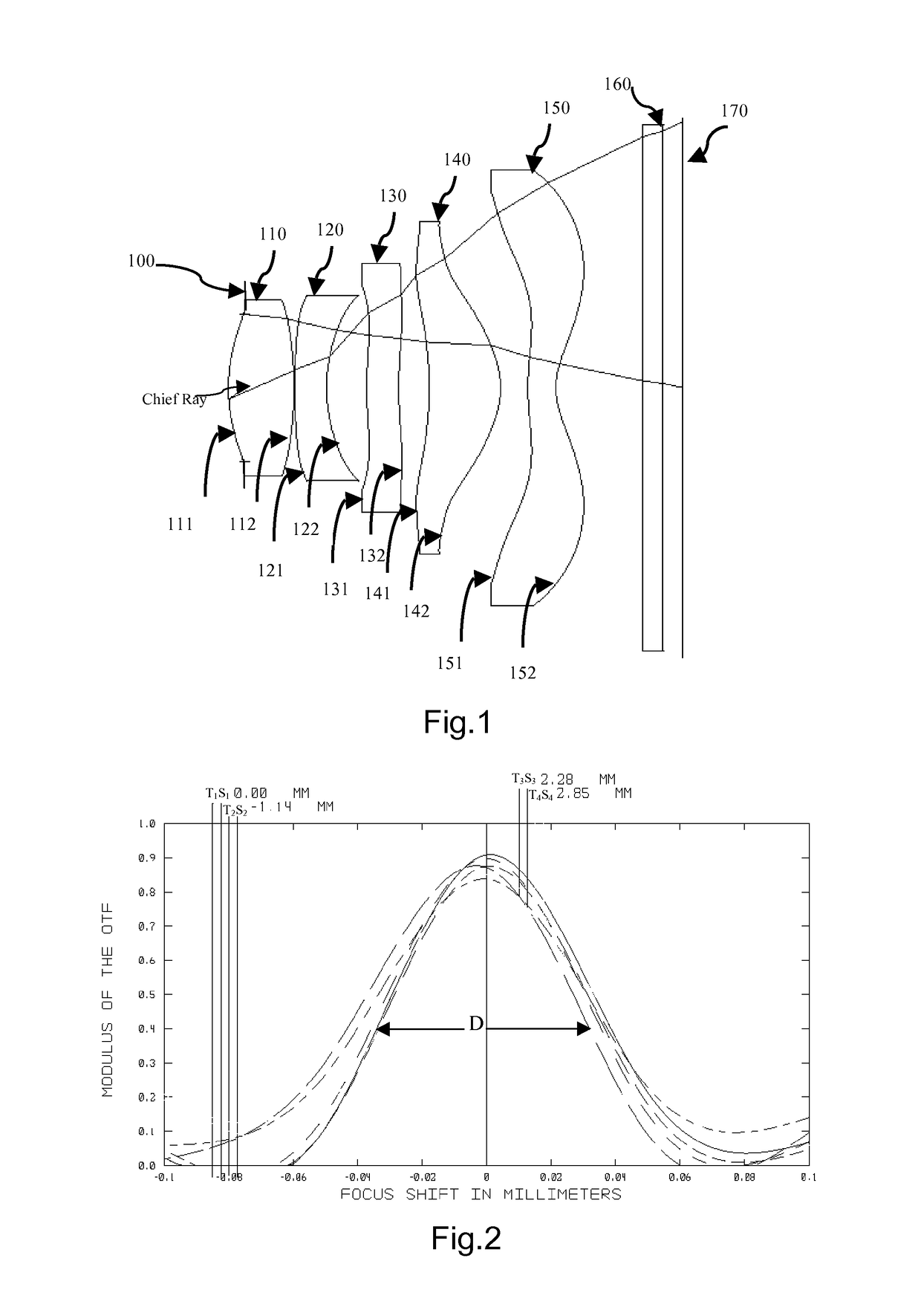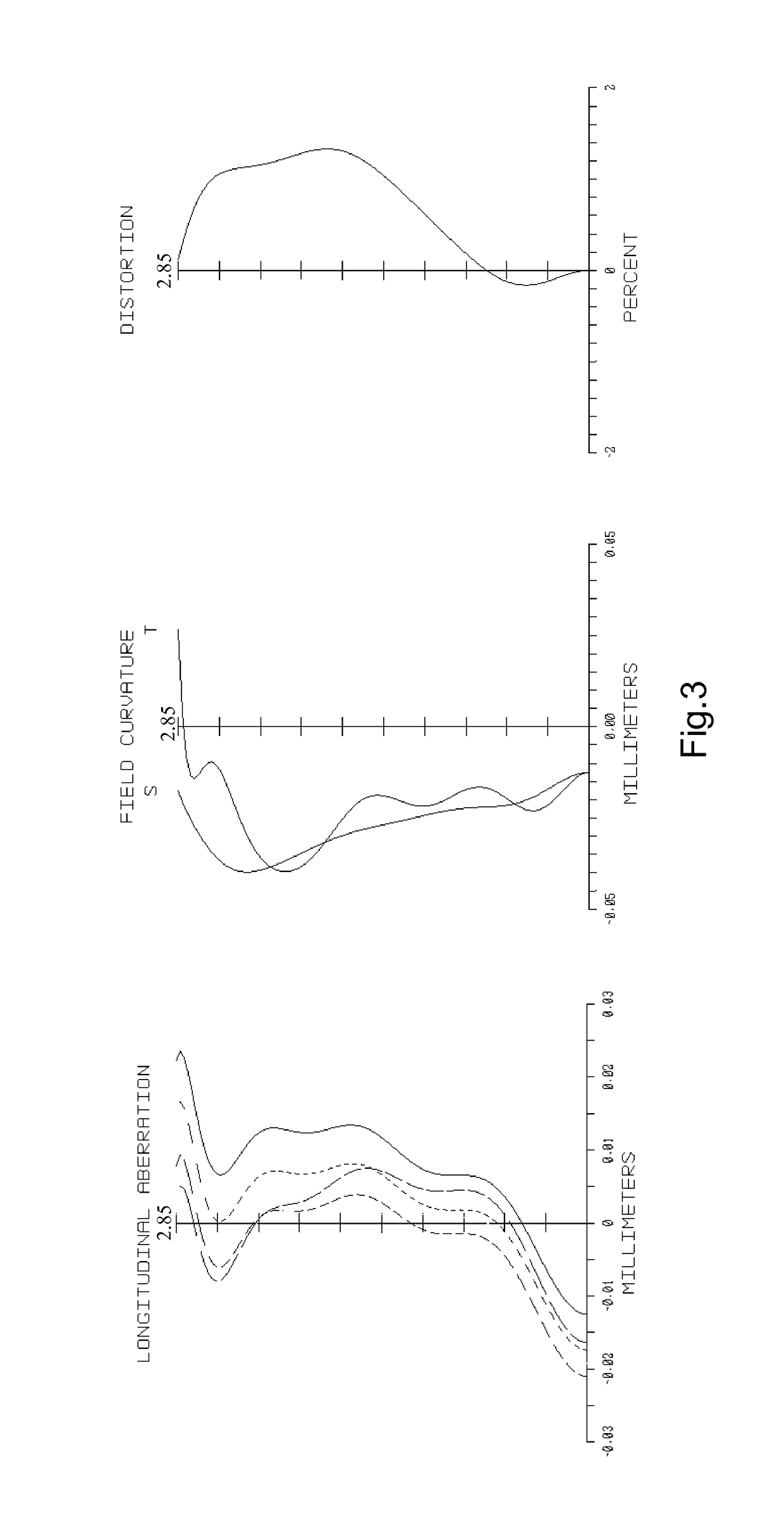Optical imaging assembly
a technology of optical imaging and assembly, applied in the field of optical imaging modules, can solve the problems of difficult to maintain a high yield of lens modules, conventional structures are no longer capable of accomplishing missions, etc., and achieve the effect of high image quality of optical imaging modules and good defocus sta
- Summary
- Abstract
- Description
- Claims
- Application Information
AI Technical Summary
Benefits of technology
Problems solved by technology
Method used
Image
Examples
first embodiment
[0041]Referring to FIG. 1 to 1C for the present invention, the optical imaging module, sequentially arranged from an object side to an image side along an optical axis, comprises an aperture stop 100, a first lens element 110, a second lens element 120, a third lens element 130, a fourth lens element 140, a fifth lens element 150, an IR-cut filter 160 and an image plane 170, wherein all the lens elements 110, 120, 130,140 and 150 are made of plastic.
[0042]The first lens element 110 with positive refractive power has a convex object side surface 111 and a convex image side surface 112.
[0043]The second lens element 120 with negative refractive power has an object side surface 121 being convex in a peripheral region and a concave image-side surface 122, and the object-side surface 121 is thereof being aspheric.
[0044]The third lens element 130 with negative refractive power has an object side surface 131 being concave in a peripheral region and both the object-side surface 131 and the i...
second embodiment
[0052]With reference to FIG. 4 the optical imaging module in second embodiment of the present invention, sequentially arranged from an object side to an image side along an optical axis, comprises an aperture stop 200, a first lens element 210, a second lens element 220, a third lens element 230, a fourth lens element 240, a fifth lens element 250, an IR-cut filter 260 and an image plane 270, wherein all the lens elements 210, 220, 230,240 and 250 are made of plastic.
[0053]The first lens element 210 with positive refractive power has an object side surface 211 being convex in a paraxial region and a convex image side surface 212.
[0054]The second lens element 220 with negative refractive power has an object side surface 221 being convex in a peripheral region and a concave image-side surface 222, and the object-side surface 221 is thereof being aspheric.
[0055]The third lens element 230 with negative refractive power has an object side surface 231 being concave in a peripheral region ...
third embodiment
[0062]Referring to FIG. 7 for the present invention, the optical imaging module sequentially arranged from an object side to an image side along an optical axis, comprises an aperture stop 300, a first lens element 310, a second lens element 320, a third lens element 330, a fourth lens element 340, a fifth lens element 350, an IR-cut filter 360 and an image plane 370, wherein all the lens elements 310, 320, 330,340 and 350 are made of plastic.
[0063]The first lens element 310 with positive refractive power has a convex object side surface 311 and a convex image side surface 312.
[0064]The second lens element 320 with negative refractive power has a concave image-side surface 322, and the object-side surface 321 is thereof being aspheric.
[0065]The third lens element 330 with positive refractive power has an object side surface 331 being concave in a peripheral region and both the object-side surface 331 and the image-side surface 332 are aspheric.
[0066]The fourth lens element 340 with ...
PUM
 Login to View More
Login to View More Abstract
Description
Claims
Application Information
 Login to View More
Login to View More - R&D
- Intellectual Property
- Life Sciences
- Materials
- Tech Scout
- Unparalleled Data Quality
- Higher Quality Content
- 60% Fewer Hallucinations
Browse by: Latest US Patents, China's latest patents, Technical Efficacy Thesaurus, Application Domain, Technology Topic, Popular Technical Reports.
© 2025 PatSnap. All rights reserved.Legal|Privacy policy|Modern Slavery Act Transparency Statement|Sitemap|About US| Contact US: help@patsnap.com



